Income Inequality
Melting Pots and Shrinking Islands
Brooklyn-based artist Ekene Ijeoma newest piece shows what parts of New York City are affordable to different people across the spectrum of salaries in the form of crystalline islands called "wage islands."
Neighborhood Polarization in a Canadian City
In Canadian cities, rising income inequality has been reflected in neighborhood polarization. The experience of Hamilton, Ontario, has been typical. Here, inner-city decline is now giving way to gentrification, displacing poverty to the suburbs.
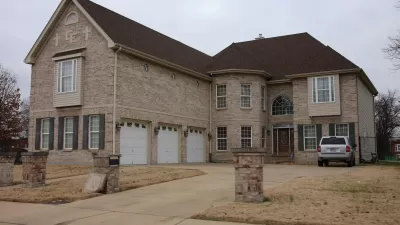
Why the McMansion Isn't Really Back
Joe Cortright criticizes reports linking high median new home sizes to a renewed demand for McMansions. The market for single-family homes, he argues, locks out buyers of modest means. Only the well-off are buying.
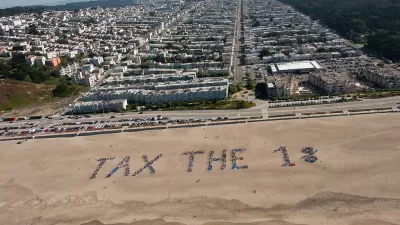
How Falling Inequality Rates Mislead
While the vast majority of cities saw an increase—or no decrease—in neighborhood inequality since 1990, nearly 30 regions became more equal. But paper equality can be problematic when the rich simply up and left town.
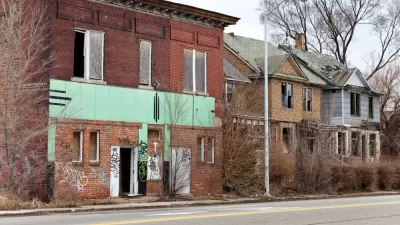
Map Depicts Nationwide Geography of Inequality
An analysis and accompanying interactive map from the Urban Institute show where the nation's richest and poorest tend to live. The map tells a tale of deeply ingrained wealth segregation.
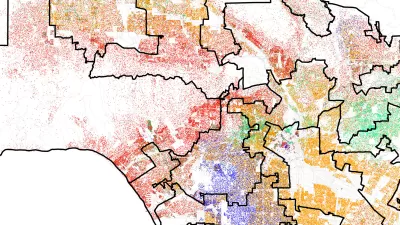
Diverse on Paper, Segregated in Reality
Many places are statistically diverse, but their inhabits can be worlds apart. A local perspective (and finer data) is needed to fully appreciate how different races and classes inhabit a neighborhood.
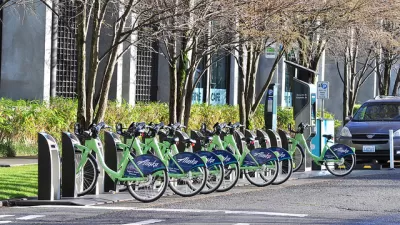
Why Bikeshare Doesn't Appeal to Low-Income Commuters
While bikeshare garners a lot of attention from the white and wealthy, it is a less obvious choice for low-income communities. Difficulties include weather, time constraints, and overall demand for non-auto modes.

The Rise of 'Segregated Affluence'
American cities are often described as 'segregated,' but segregation is not always well defined. A new study reveals a distinctive pattern: American cities tend to have many small areas of affluence amid fewer, but often larger, areas of poverty.
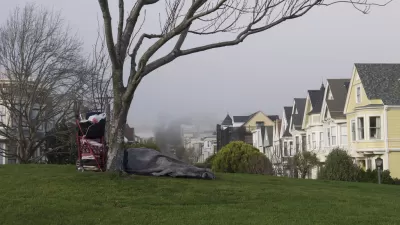
Study: Income Inequality Lowers Life Expectancy
Research suggests a correlation between regional income inequality and poorer health. Several statistical and sociological causes may come into play.

Death of the Shopping Mall May Be Exaggerated
Despite threats like online retail, upscale sectors of the mall market are prospering. This is good news for what are, perhaps, the only walkable 'streets' in some parts of the country.
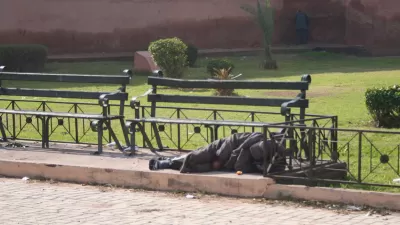
Report: Which American Cities Are the Most Unequal
According to Brookings, this research is intended to inform local debates over the minimum wage. Drawing on Census data, the report finds that astronomical income gains are still concentrated among the biggest cities.
Mapping Income Inequality on D.C.'s Metro Lines
MIT's You Are Here mapping and data visualization project has produced a map of income levels, as tracked by the routes of the Metro subway system in Washington D.C.
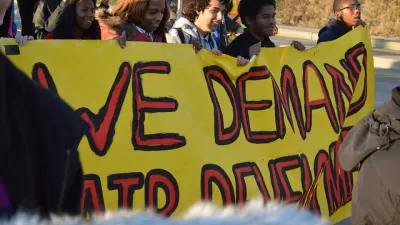
Dumping in Dixie and the Inequity of Place
Only by better addressing issues of inequity can we create truly sustainable and livable communities. But is that even possible today?
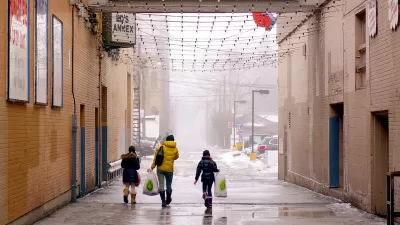
The Neighborhood Effect: How Place Impacts Upward Mobility
A new blog post from Jonathan Rothwell discusses the impact of neighborhoods on upward mobility.
Racial Inequalities Withholding $2.1 Trillion from U.S. GDP
A new study by PolicyLink and the University of Southern California's Program for Environmental and Regional Equity showed that U.S. GDP would expand by $2.1 trillion if racial minorities had equal access to opportunities within the job market.
Fed Chair Janet Yellen Discusses Continuing Wealth Inequality in the United States
In a recent address to the Conference on Economic Opportunity and Inequality, chairwoman of the Federal Reserve Janet Yellen portrayed the stark inequalities growing within American society.
Report Details Deep Inequality in the St. Louis Region
Ken Leiser shares the results of survey finding that "Blacks are far more likely than whites to live in poverty, to be unemployed and to drop out of school in the St. Louis region."
American Community Survey: Recovery Hasn't Improved Poverty
According to the freshly released 2013 ACS by the United States Census Bureau, there have been modest, but insignificant, gains toward alleviating poverty within many urban areas.
Social Mobility in America: Reality or Dream?
Richard Reeves explains the factors that limit or assist social mobility for people born into the lowest economic quintile in American society.
Income Inequality Worse in 2 of 3 American Metropolitan Areas
A new report by the U.S. Conference of Mayors highlights the growing income divide, breaking the data down to the local level and finding that income inequality grew in two out of three metro areas between 2005 and 2012.
Pagination
Urban Design for Planners 1: Software Tools
This six-course series explores essential urban design concepts using open source software and equips planners with the tools they need to participate fully in the urban design process.
Planning for Universal Design
Learn the tools for implementing Universal Design in planning regulations.
Heyer Gruel & Associates PA
JM Goldson LLC
Custer County Colorado
City of Camden Redevelopment Agency
City of Astoria
Transportation Research & Education Center (TREC) at Portland State University
Jefferson Parish Government
Camden Redevelopment Agency
City of Claremont


































